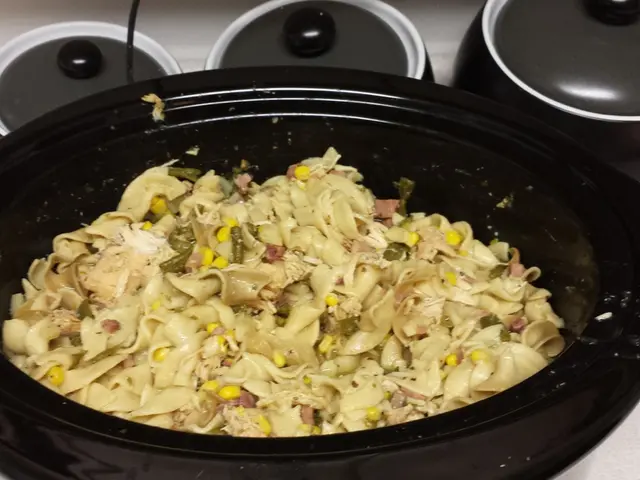The Inner Composition of a Popular Snack Revealed
Devious Deceptions in Candy-Coated Cheesecakes
Sneaky Snacks Aren't So Sweet After All ❌🤥🤮
For decades, caramelized cheesecakes have been peddled as some sort of godsend—marrying the pseudo-health benefits of cottage cheese with the heavenly sin of sweetness. But the ugly truth is painfully stark: these caramelized concoctions can be far more detrimental than an ordinary chocolate candy bar.
The Hidden Horrors 😈
- Diabolic Doses of Sugar - Some brands unapologetically dish out whopping 40 grams of sugar per 100 grams of product, which is nearly double the recommended daily sugar intake for kids.
- Low-Gear Lipids - These tooth-rotting pastries are often lathered in palm oil or hydrogenated fats, which aren't just unhealthy, but can potentially wreck your heart.
- Faux Dairy Disaster - Don't let the "dairy" label fool you—many of these faux desserts actually contain a medley of vegetable fats and artificial cheese flavors, nowhere near the real deal.
- Synthetic Slime - Stabilizers, funky colors (like E102 and E124), and preservatives ensure your cheesecake is far from wholesome, providing you with a bunch of unpronounceable additives.
Finding a Quality Cheesecake 🔍
To dodge a cheap and crummy imitation, scrutinize the ingredients like a hawk:
- If sugar takes the lead role, you've got a sugary candy, not a real cheesecake.
- Watch out for vegetable fats; opt for cheesecakes that actually boast real cottage cheese or whey.
- If the glaze contains fake cocoa butter, run the other way.
- Synthetic additives with "E" tags belong in the bin, not in your stomach.
A Healthier Alternative 🥦
If you fancy treating yourself or the keeds to something tasty and wholesome, consider the following options:
- Multitasking Homemade Cottage Cheese — Add fresh fruits, berries, or a smattering of honey.
- Unadulterated Seasonal Yogurt — Mix it up with fruits and no added crap.
- Artificial Sweetener-Free Snack Bars — Nuts, dried fruits, or granola bars without the chemical cuisine.
Caramelized cheesecakes, despite their tempting veneer, are difficult to classify as a healthy choice. Nutritionists implore us to explore more natural alternatives, especially for the youngins. 👶🥦
Enrichment Insights 🔍
- Allergen Risks - Commercial caramel sauces could contain undisclosed ingredients like soy or sesame, posing risks to those with allergies. Similarly, cheesecake bases may contain undeclared allergens.
- Sugar and Fat Content - High sugar content (common in caramel) can lead to blood sugar spikes and cravings, while heavy cream/cream cheese contributes to post-indulgence lethargy. Regular consumption can increase weight gain, diabetes, and heart disease risks.
- Foodborne Illness - Poor storage (failing to promptly refrigerate) can lead to bacterial growth, despite no direct recalls for cheesecakes. Recent alerts for undercooked charcuterie emphasize the importance of proper handling for perishable items like cheesecakes.
- Additive Sensitivity - Some individuals may react to preservatives or stabilizers found in commercial caramel products or cheesecake mixes, though no specific recalls cite these additives for caramelized cheesecakes. For safer consumption, always verify product recall notices, refrigerate promptly, and exercise portion control. 🥦📈🎉🍰💩💰🤑🙏🤪😈🤞🤮🤥😠🤒😭🤧😤😱🤯🤫👎🔫🔪💣🚨🏳️🌈🌈🤳🤝💍🚴🏃🏋️♂️🥊🥋🎾🎹🎼🎧🔧🛠️💄👠
- Although marketed as healthier options, caramelized cheesecakes can contain alarming amounts of sugar, sometimes offering 40g per 100g, which exceeds the recommended daily sugar intake for children.
- These desserts are often laced with unhealthy fats like palm oil or hydrogenated fats, which can negatively impact heart health.
- Many caramelized cheesecakes are not as dairy-based as they claim, often containing vegetable fats and artificial cheese flavors.
- Synthetic additives, preservatives, and artificial colors like E102 and E124 can be found in these cheesecakes, making them far from wholesome.
- To avoid low-quality imitations, one should carefully examine ingredients, such as checking for high sugar content, avoiding vegetable fats, and staying away from products containing synthetic additives.
- Healthier alternatives include homemade cottage cheese with fresh fruits, seasonal yogurt, or artificial sweetener-free snack bars made with nuts, dried fruits, or granola.
- Aiming for healthier diets and lifestyles can benefit everyone, particularly children, who should avoid caramelized cheesecakes due to the risks associated with sugar, fat content, allergens, foodborne illness, and additive sensitivity.








